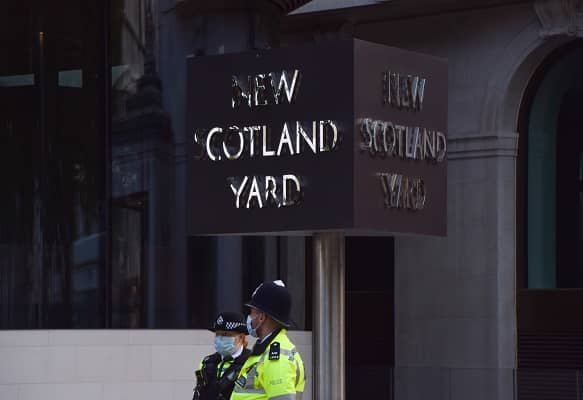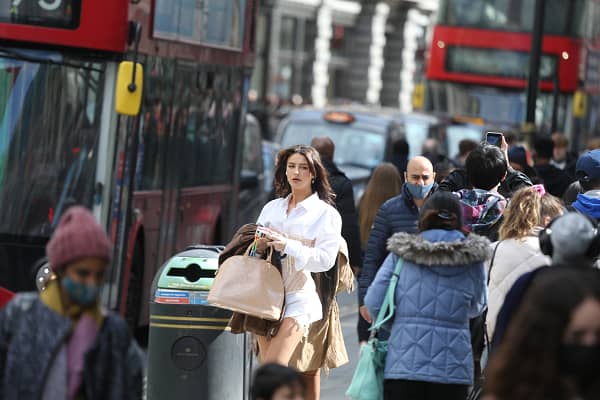Jobs
Gensler’s London office leading on design for The Line’s first phase

The practice’s European headquarters in London is working with Austrian practice Delugan Meissl Associated Architects (DMAA) and UK engineering and consultancy giant Mott MacDonald on the scheme, which is at the heart of Saudi Arabia’s wider NEOM megaproject.
NEOM announced today (11 November) that Gensler, DMAA and Mott MacDonald would together shape the ‘core’ design, city planning and engineering for the Hidden Marina, The Line’s under-construction 2.4km-long first phase.
The AJ understands that architects on common design elements on The Line – also known as ‘vertical neighbourhoods’ – are due to be announced in early 2025.
UK firms Assael Architecture, AHMM, PLP Architecture and SimpsonHaugh are among 24 international practices understood to have competed for work on The Line’s ‘vertical neighbourhoods’ but it is not yet known whether they have won jobs on the scheme.
The announcement comes on the heels of reports that an estimated 21,000 workers, mainly from Nepal, India and Bangladesh, have lost their lives since 2016 working across Saudi Arabia’s so-called ‘giga projects’, according to an ITV documentary last month, Kingdom Uncovered: Inside Saudi Arabia.
Saudi Arabian authorities have denied the claims made in the report, which also documented 16-hour work days and poor working conditions on The Line – the flagship project at the heart of Crown Prince Mohammed bin Salman’s Saudi 2030 Vision development drive.
In a statement to the AJ, human-rights charity Amnesty International said it was ‘vital that architecture firms considering operating in Saudi Arabia are doing proper due diligence to ensure they’re not contributing to labour exploitation and other human rights abuses’, which it said were ‘inevitable’ given the size of Saudi Arabia’s development push.
The documentary, which did not make direct links between specific schemes and worker deaths, said The Line alone had a 140,000-strong workforce.
ITV also cited a doubling of executions in the country since 2015, under the rule of bin Salman, the figurehead of Saudi’s pivot to development. In addition, it is understood that five people have so far been given death sentences for refusing to leave their homes to make way for The Line and that 50 people have been arrested for similar reasons.
The design update on The Line comes after the AJ revealed in June that DMAA had taken a leading role on the linear city following the departure of US firm Morphosis. A dozen names were featured in The Line exhibition in Riyadh in late 2022, as the AJ exclusively revealed last January. Since then, several firms have since withdrawn or ended their involvement in the scheme. These include Adjaye Associates, Coop Himmelb(l)au, and HOK.
Gensler’s managing principal, Europe, London-based Duncan Swinhoe, said: ‘The Line presents an extraordinary opportunity in the history of urban development to redesign and reimagine a new future for our cities.
‘[We] are working around the globe to design places for people and to shape the cities of tomorrow. We look forward to bringing our design values and expertise and collaborating with the greatest minds from across the world to develop one of the most transformative, resilient, and innovative architectural projects of our time.’
Mott MacDonald group managing director Cathy Travers said: ‘The Line is a hugely complex project with an ambition to change the way we think about urban living. It requires deep technical expertise across multiple engineering disciplines, planning and design, and, alongside our partners, we are well placed to realise this vision.’
DMAA partner Martin Josst described The Line as ‘a groundbreaking project in relation to traditional ways of making the city’.
He said: ‘It introduces the variables of a city, such as its infrastructures, mobility, public or private spaces, the organisation of activities, and the extensive list of hierarchies and topics typical of a complex organisation, all within a new logic derived from the ultra-compassionate nature of its unique proposal. Zero-gravity urbanism envisions scenarios for a new livability, where the relationship between physical spaces and human experience is redefined through a three-dimensional approach to urban design.’
The Line is planned to complete in 2045, holding nine million people across 140 modules measuring 200m wide and 800m long. The first phase will house three separate modules. Earlier this year, however, there were rumours that the plans were being scaled back.
In April, Bloomberg reported the number of residents forecast to be living in the scheme by 2030 had been revised down from 1.5 million to 300,000. Bin Salman – who is NEOM’s chairman – has long said only a ‘first phase’ of The Line would be completed within the next six years.
A NEOM spokesperson told the AJ last year the first section would still ‘welcome its first residents and visitors by 2030’.
Other UK names previously or currently involved in The Line include Weston Williamson + Partners, AtkinsRéalis and Aecom.
Saudi Arabian press have also reported that the country’s National Council for Occupational Safety had ‘strongly refuted claims’ suggesting a rise in worker fatalities due to poor working conditions in the country and according to a statement issued last week, and reported by the Saudi Gazette, the council confirmed that Saudi Arabia’s work-related fatality rate stood at 1.12 per 100,000 workers, claiming it was one of the lowest rates globally.










